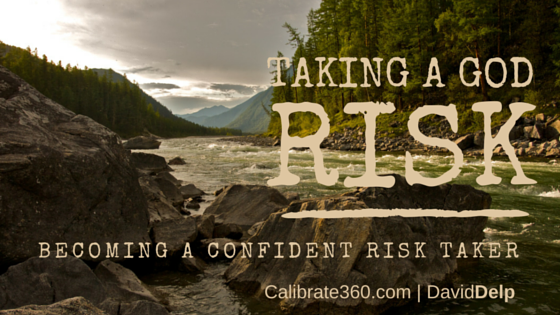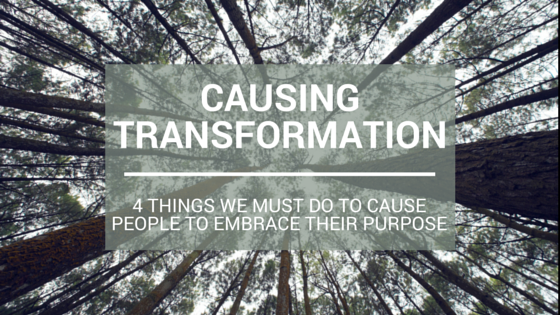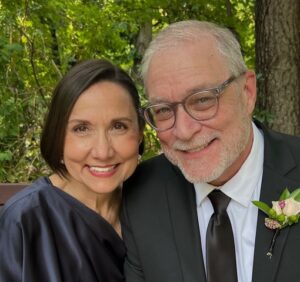by David Delp | Jun 15, 2015 | Uncategorized
Leading those we love into the unfamiliar is a necessary challenge. We can’t climb higher, go further, or discover new possibilities unless we move into the unfamiliar.

I married a coffee snob. Having spent a few years becoming accustomed to the strong European brews in Belgium, Folgers just doesn’t cut it for her. Donna and I have only been married for several months (a thumbnail of our story) and before, when I needed coffee, I always bought a big red can of Folgers regular and a smaller green can of decaf. My coffee life now consists of beans, grinders, French presses, and insulated carafes.
I gradually acquired a taste for the richer and stronger brews. Now, a Folgers Mr. coffeeish brew tastes a bit like caffeinated mud. No offense to anyone, I know it’s a matter of taste, but mine have changed!
Coffee is not consequential to our life purposes, at least not usually, but learning to move into the unfamiliar is necessary. We have to regularly stretch, try new things, explore new opportunities, and attempt uncomfortable things or we will keep getting status quo results. To lift to a new place in life we have to walk through unfamiliar doors.
When moving into unfamiliar territory we usually question the cost and necessity of the move. Leadership is about prompting, coaching, mentoring, and generally leading people to move into the unfamiliar. If those we love and lead are happy with their current “brew”, why bother?
We need people in our lives who will challenge us to embrace the unfamiliar. We need people who have discovered things of which we are not yet aware. Our relationships prompt our growth in this way.
I need relationships in my life who will reach for me and pull me to a place I did not know existed.
How do we step into a necessary “unfamiliar” and how do help those we love and lead move out of their comfort zone?
- Encourage new adventures
- Encourage new thinking
- Encourage new decisions
- Encourage new outcomes
Encourage New Adventures
Intentionally seek out things you’ve never done. Try a new coffee you’ve never tried before. Eat something you’ve never eaten before. Go somewhere you’ve never been. Read a book in a genre you usually don’t read. Try something new that puts you in proximity with new people and new perspectives. You never know where you will find a perspective or insight that will change something in you that opens a door to a new level.
Action plan: What one thing, large or small, will you do today that you’ve never done before?
New adventures establish a pattern in our lives. Every time we stretch our comfort zone it gets a little easier. Little adventures are pre-requisites for life-changing adventures. It is a journey!
Encourage New Thinking
As I write this I am taking a few days in the Smoky Mountains to reflect and rest. Staying high on a mountain, this morning a cloud filled the valley and sunshine drenched the peaks sticking out of the fog. I thought about the people in the town below experiencing a foggy morning while we experienced a beautiful sunshiny morning.
Our vantage point gives us a different perspective. Encourage thinking that looks at things from different angles. We tend to only seek to deepen our own perspectives and we can sometimes fail to listen to other perspectives that may at least give us insight. When we insulate ourselves and shut out everyone else with a different perspective, then we lose perspective into why they think like they do. At very least, I cannot influence someone if I do not understand their world view.
If you are a leader, or an emerging leader, read a book that you don’t agree with, listen to some news feeds that make you angry, converse with someone who believes something you think is wrong thinking. It might give you an important insight.
Encourage New Decisions
Deferring a decision is a decision. When we refuse to make decisions we stay in the same place, in the same circumstances. We need to give those we love and lead tools to make better decisions.
Discuss examples of how you made tough decisions. Ask others how they came to make life changing decisions. Listen for patterns and insights.
We need to put ourselves in decision-making situations. As a leader, put those you love and lead in decision-making situations under your guidance to prepare them for a future of decision-making. Encourage them to make decisions.
Encourage New Outcomes
We must connect the things we try, reach for, or decide today to the outcomes we desire tomorrow. What are our hopes, our dreams, and our purpose? What are we passionate about? What is God saying to us through revelation, impressions, and divine circumstance?
Moving into our dreams, our passions, our hopes, and our purpose involves stepping into the water, trying new things, gaining new insights, and moving in new directions.
I was happy with the coffee I drank every morning –and it was much cheaper! But I am happier with the experiences I now have with a much more quality brew. It is fun to look for unique coffee shops and try new brews. It is fun to grind the coffee to just the right consistency for the French press. It is fun to try to get the next cup just right. I’ve found something new that makes life a bit more interesting.
The unfamiliar is often uncomfortable, but it is one of the gateways to a next-level life.
Try something new today! Pull the trigger on something you’ve been thinking about for a long time! Go ahead, shell out a few bucks for an exotic brew…it might just change your life!
Question: What are you going to try today that you’ve never tried before?
by David Delp | Jun 12, 2015 | Spiritual Life, Uncategorized
How do you know if you are following the right agenda? I want to follow “God’s agenda”, but sometimes what I really want is God’s approval of my own agenda. Funny how God’s voice and my voice can sound a lot alike.

(NOTE: Spirituality is important and is one of the big 5 for this blog: Spiritual Life, Self-Leadership, Life-Management, Relationships, and Vocation.)
I’ve been slowly working my way through the book of Joshua (Bible: Old Testament) in my personal reflection times. It is the story of Joshua leading a million former slaves into a new life, into their “promised land.” In chapter 3 they come to the Jordan river at flood stage and they must strategically cross. The priests were leading the people carrying the Ark of the Covenant, which represented God’s Presence. When the priests put their feet in the swollen Jordan river the water dammed up some distance upstream and the priests and the people walked across the Jordan River bed on dry ground. They walked into God’s agenda for their lives.
They stepped into the water and a miracle happened. The river dried up so they could strategically walk across. Some thoughts:
- They moved forward in God’s agenda
- The miracle didn’t happen until they took a risk
- They moved with the Presence of God
I’ve spent my life trying to discover the perfect path. I’ve cycled through a lot of different thoughts:
- Maybe God has a perfect plan for my life and it will just happen.
- Maybe God’s plan will only be fulfilled if I aggressively make it happen.
- Maybe there is no real plan for my life and out of my spiritual intuitiveness I need to just craft a plan.
- Maybe there are a lot of good paths for me to walk and I just need to pick one.
- Maybe “stuff” just happens and it really doesn’t matter what I do.
I’ve had good things happen over which I wanted to “high-five” God and say, “Yeah, we did it!” I’ve had bad things happen (such as the untimely and sudden death of my first wife after 33 years of marriage) where I just looked at the sky and said, “What the heck was that!” These things have caused me to ask all of the bulleted “may-bes” above.
Here’s the deal:
We must discover the difference between our agenda and God’s agenda.
How do I then differentiate between my agenda and God’s agenda?
- I must first determine why God’s agenda is important or relevant.
- I must act on what I believe and take risks.
- I must move with the Presence of God
God’s Agenda is Important and Relevant
We are part of a bigger picture. We can become so individualistic in our thinking we discount the importance of community and how we all interface together for the common good of all. Sometimes it seems there is no plan and we are all on our own, but my faith and experience tells me otherwise.
Our relationships make us rich, without them life loses meaning.
There are good things to experience, things and relationships that bring so much meaning into our lives. I don’t want to leave my future to chance. I don’t do it in my strategic thinking and planning for organizations, processes, and leadership, and I don’t want to leave it undone for my personal life and those I am leading.
It takes a measure of faith to believe life has a purpose beyond the “dash between the dates”. God’s agenda, His plan and purpose for my life, is relevant to me and I want to discover the right paths to walk in my life, because I desire the right destination.
In Joshua’s story the river did not stop for the people, it stopped for the Presence of God. The river did not stop for Joshua’s agenda, or the people’s agenda, the river stopped because it was God’s agenda.
Arrogance leads me to expect miracles to take place to fulfill my agenda, faith leads me to expect miracles to take place to fulfill God’s agenda.
God’s agenda is both important and relevant because if I operate out of a grand and divine purpose I am going to approach mandates with a God-confidence instead of a self-confidence.
Question: How do you discover God’s agenda for your life? How do you help those you lead discover and pursue God’s agenda for their life?
Act on What you Believe and Take Risks
To take the most important national treasure (The Ark) and step into a river at flood stage is a risk. Remember all the stories of those who try to drive across a flooded road and their 2-ton car is swept away by the current?
I need to anchor in a few things I believe so strongly that I am willing to take huge risks. If it is about me, then I’m a little uncomfortable with that. If it is about what I believe to be a divine direction, then lets step in and do it.
Here’s the thing: We need a duel preparedness. If we step in and the river dries up, cool! If we step in, get swept down river, lose the ark and nearly (or completely) lose our lives, at least we stepped out in something we truly believed to be the right thing–and I’m good with that!
Stop being afraid of making the wrong decision, just have a pure heart, do the best you can with the right motives, and go for it!
Question: How do we help those we lead become risk-takers?
Move With the Presence of God
The ark represented the Presence of God. They followed God. This is key.
We must give attention to the development of our spiritual lives. As transformational leaders we need to give as much time and attention to the spiritual development of those we love and lead as to their professional and temporal development. Sometimes that takes the form of setting an example, or being transparent with your own spirituality in a way appropriate to the relationship.
I position myself daily to quiet my spirit, to get in the Presence of God. Rather than talk endlessly about all of the things I want or need, or the things I just want to get off my chest, I get quiet and I listen. Oh, the insights that come when you listen and journal.
How do we move with the Presence of God:
- We quiet ourselves and listen for insights and impressions.
- We look for the activity of God around us, what does He seem to be doing?
- We listen to the insights of people in our lives we trust.
- Most of all, we seek to have a pure heart with the right motivations so we can trust our spiritual instincts.
I want to be a risk-taker. I want to move forward with what I believe to be God’s agenda.
(NOTE: Hey, if you like these posts take a moment to subscribe via email using the box to the right of this post at Calibrate360.com. You can unsubscribe anytime!)
by David Delp | Jun 9, 2015 | Relationships, Uncategorized
We are catalysts who cause people to pursue and fulfill their purpose. Yes, that’s right, to cause people to fulfill their purpose! To cause is to make something happen.

As spiritual and transformational leaders we would make ourselves crazy if we took responsibility for fulfilling the dreams of others. No one needs that kind of pressure; yet, we not only can cause people to fulfill their purpose, it is our purpose as leaders.
I take my inspiration from Joshua, Moses’ successor, who inherited the task of leading a million people lost in the desert into a homeland God promised to their ancestors (Joshua chapter 1, verse 6). God’s word to Joshua was to “cause this people to inherit the land I swore to their fathers to give them.” To cause. I never thought of it before, but the directing word used was not “help”, or “lead” , or “inspire”, though I’m sure all of those things are implied, but it was to cause them to obtain their promise.
How can we be transformational leaders who cause others, and particularly the people we love, to lay hold of their promise and purpose? Some things we must do:
- See Yourself as a Catalyst
- Lend Your Resources and Influence as a Safety Net
- Leverage Your Experience as a Launching Pad
- Call out Gifts and Strengths
See Yourself as a Catalyst
We have to understand our role and calling as catalysts (change agents). The more we grow and mature in our own purpose, the more we come to realize we are not simply building out a grand plan to single-handedly change the world, but we are investing in the people we love and lead to help them reach for things they are not sure they can accomplish.
To “cause transformation” implies those we lead may not otherwise step into their dream. To cause, in this sense, is being a catalyst for transformation, an impetus for change, a facilitator to help people climb to their intended heights. We don’t take an arrogant or self-important posture because the dream does not come from us, the ability does not come from us, someone else’s promise is something given to them and it can find fulfillment independent of us. On the other hand, as a leader strategically placed in someone’s life through relationship we can encourage, facilitate, mentor, coach, lift, and inspire people to step into and seize their promise.
Lend Your Resources and Influence as a Safety Net
One feature common to all sane high wire acts is a net. Yes, the thrill of danger might be greater without a net, but the mere existence of the net gives rookie performers the confidence they need to put on a spectacular show. The day might come when these performers become more seasoned and they will attempt movements without a net, but while learning a net is a good thing. Similarly, in every endeavor, a safety net emboldens us to take greater risks.
Lending our resources to underwrite bold actions is a gift. Lending our influence can move others paces ahead quickly. Such leadership gestures give “wings” to people and prompts them to action.
Leverage Your Experience as a Launching Pad
As transformational leaders we lead with the heart of a father or a mother desiring good things for those we lead. With my children I always wanted to act as a ladder for them to climb and reach things I could never reach. The heart of transformational leadership is leveraging our experience to help those coming behind us reach higher.
Call Out Gifts and Strengths
Those we lead already have gifts and strengths. We do not approach leadership from the standpoint that followers will fail without us, no, we approach leadership from the posture of helping them do what they were probably going to grow into anyway, only we will help them do it sooner, better, and with the advantage our encouragement and support.
“Catalyst” is a scientific term for a substance that increases the rate of a chemical reaction. Contact with a catalysts speeds up a process. In the story of Joshua, Joshua’s strength and courage in leadership and spirituality inspired an army to do what they could have done physically without him, but not emotionally or spiritually. The ability was within the people, but they needed Joshua to show them the way.
Our purpose, as spiritual leaders, is helping others discover and understand their calling and purpose, to help them believe in their gifts, and to relate our own experiences to give them a fast track for learning and growth. My purpose is helping the people I love and lead lay hold on their design.
We tend to downplay our role in the lives of people obviously gifted. Of course God is the one who gave them the gift in the first place, of course a person is not going to change unless they decide, but our role is important in transforming the lives of the people we love and lead.
Take a moment to think of one way you can intentionally encourage someone today? Take a moment and share some other ways you encourage the people you lead.




